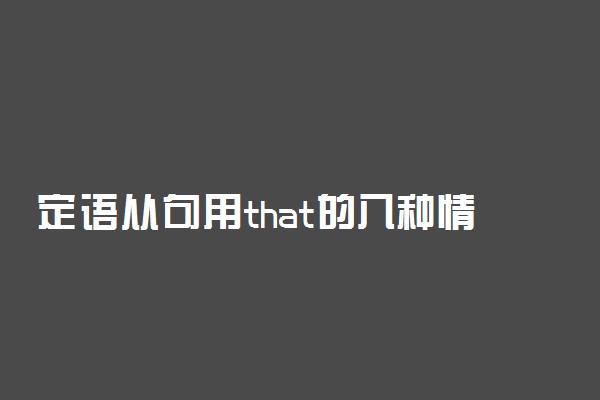先行词为不定代词、先行词是形容词级或被形容词级修饰、先行词是序数词或其被序数词修饰、先行词被the very, the only等词修饰、先行词包含了人和事物两方面的含义、先行词被same修饰,且指“同一物品”、关系代词在定语从句中作表语、主句是以who,which开头的特殊疑问句或先行词是who。

当先行词为all, much, none, something, nothing, everything, the one, few, little, many, anything等不定代词时。例如:
We should do all that is useful to the people. 我们应该做一切有益于人民的事情。
当先行词被only, any, few, little, no, all, many, much等不定代词修饰时。例如:
I have finished reading all the books that I borrowed from the library. 我己经看完了所有从图书馆借来的书。
当先行词被序数词、形容词最高级以及the only, the very, the next, the last等修饰时。例如:
This is the first book that I bought in the shop . 这是我在这家书店买的第一本书。
当先行词是形容词最高级时。例如:
This is the best that can be done now.这是现在能做的最好的办法。
先行词既指人又指物时。例如:
We talked of things and persons that we remembered. 我们谈起了我们记住的人和事儿。
关系代词在限制性定语从句中作表语,并带有比较的含义时。例如:
Our school is no longer the school that it was ten years ago .我们学校已经不再是十年前的样子。
句子的前一部分已经出现了which,为避免重复,句子的后面部分通常不再用 which而用that来引导限制性定语从句.例如:
Which is the book that you bought yesterday? 哪一本书是你昨天买的?
当主句是以who , which 引起的特殊疑问句时,关系代词通常只用that. 例如:
Who is the man that you spoke to just now? 刚才和你说话的那个人是谁?